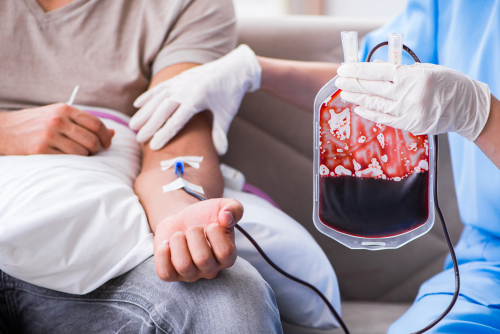
The life-saving procedures of organ transplants and blood transfusions have been a beacon of hope for countless individuals. However, recent scientific inquiries are beginning to question whether these medical interventions may carry unexpected consequences.
This specifically involves the possibility of transmitting not just life-sustaining cells, but also elements of the donor’s personality or memory.
In the past year, approximately 4,600 people in Britain received organ transplants and nearly 200,000 gallons of blood were given in transfusions. These numbers underscore the significance of these procedures in modern medicine.
Does a blood transfusion pass on the donor's personality, too? | Daily Mail Online https://t.co/i2Z42tBKjk
— Thomas Payne (@TPayneCommon) October 24, 2023
Yet, some patients have reported experiencing changes in their behavior, values, and even tastes following these procedures. This led to the emergence of a new field of study known as cellular memory, which explores the potential for personality transference through organ transplants or blood transfusions.
Dr. Mitchell Liester, an assistant clinical professor of psychiatry at Colorado University, proposed in a 2019 article that memories from the donor’s life could be stored in the cells of the donated organ and then “remembered” by the recipient following a transplant.
This theory, while seemingly far-fetched, is supported by a study where scientists successfully transplanted memories from one snail into another by transplanting their tissues.
This research involved giving mild electric shocks to the tails of marine snails, which enhanced their defensive withdrawal reflex. The shocked snails learned to evade the stimulus, contracting defensively for 50 seconds when zapped.
Interestingly, after receiving transplants from the shocked snails, the unshocked snails exhibited the same prolonged contraction when zapped. This led the researchers to conclude they effectively transferred the memory.
14 kids infected with HIV, Hepatitis after blood transfusion in UP’s hospital
(Reports @haidarpur)https://t.co/EAAyV6qG1d pic.twitter.com/IuDv0v2EW7
— Hindustan Times (@htTweets) October 24, 2023
The implications of this research extend beyond the realm of snails. Some scientists now suggest memories may be stored as chemical codes inside the proteins that our DNA is wound around.
If this theory holds true, it may mean memories and potentially personality traits could be transferred in blood transfusions or organ transplants.
However, it’s important to note these theories are still in their infancy and require further investigation. The potential for personality transference through blood transfusion or organ transplant remains a hypothesis.
As such, while the concept is intriguing, it should not deter individuals from receiving life-saving medical procedures.
While organ transplants and blood transfusions undeniably save lives, they may also open up a new frontier in our understanding of memory and personality. As science continues to explore this fascinating possibility, we may find ourselves redefining what it means to give and receive life.















